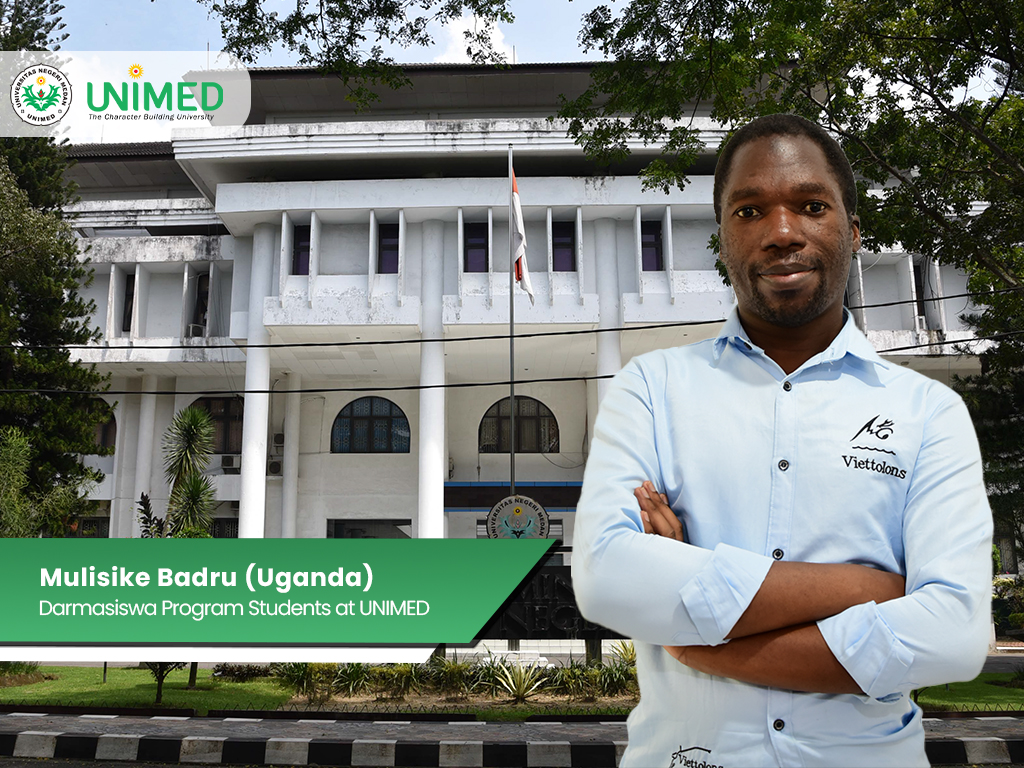
I came to Indonesia to study the language, but I had no idea I would end up studying myself. In Uganda, I am used to a rhythm of life that’s slow and grounded. Medan, on the other hand, has a beat that is unpredictable—sometimes chaotic, sometimes calm, always alive. The sounds of motorbikes, the call to prayer echoing through the city, the chatter of street vendors… it felt like the city was talking to me all the time.
At Universitas Negeri Medan, my lecturers were kind and full of patience. But what touched me most was how they treated us not as foreign guests, but as part of a growing family. In one of the classes, we were asked to write a poem in Bahasa Indonesia about our hometown. That simple assignment opened a door in me—I wrote about the Nile and my grandmother’s garden, and my classmates listened like they were there with me. That was the first time I felt truly seen, even in a language I was just beginning to grasp.
One weekend, I visited Danau Toba and visited a traditional Batak village. I was mesmerized by the unique architecture—roofs like boats, carved wood details, and the scent of burning wood in the air. A local elder told us about the history of the Batak kings and how the lake was formed, mixing mythology with geography. He spoke with such pride and poetry that I almost forgot I was just a visitor. I remember dancing the Tor-Tor with the locals, awkward at first, but welcomed without hesitation. There was no judgment—only joy. We were sweaty, clumsy, and laughing, but in that moment, I felt like I belonged.
Before we left, I stood alone by the water. The lake shimmered in the morning light, and I felt like it was offering me something: peace, perspective, maybe even a little bit of healing. Danau Toba wasn’t just a destination. It was a reminder—that sometimes, to find yourself, you have to get lost in beauty, in culture, and in the kindness of strangers.
I don’t know when I’ll be back, but North Sumatra anda Medan will always be a part of my story. Not because I studied here, but because I grew here.”






Comments are closed.